Artist
LUCIO BATTISTI
![]()
The most popular singer/composer in Italy for many
years during the 70's, Lucio Battisti can hardly be considered a progressive
artist, though his original approach to the music was highly influential for
many later performers.
A reserved person, irreverent and nonconformist, Battisti, born in 1943 in
Poggio Bustone near Rieti, had his musical debut in the beat groups I Mattatori
and I Campioni, before entering the professional music scene as composer for the
likes of I Ribelli (including Demetrio Stratos), I
Dik Dik, Equipe 84.
His first single came in 1966, Per una lira, but
his first hits came in 1968-69 with the singles Balla Linda and Acqua
azzurra acqua chiara.
First album came at the beginning of 1970, simply called Lucio Battisti and
including many of his previous singles and songs composed for other artists. His
collaboration with lyricist Giulio Rapetti (known as Mogol) was very long and produced dozens of hits.
A second album, Emozioni, also in 1970 confirmed Lucio as one of the
emerging top Italian artists. Battisti was helped by members of PFM
(Mussida, Premoli, Piazza, Di Cioccio), Dik Dik,
Ribelli and guitarist Alberto Radius from Formula Tre
in this album. A long and fruitful collaboration started now with Formula
Tre, Battisti writing and producing their first album and often using them
as his backing band.
Third album, released in 1971, was Amore e non amore,
and it's usually described as Lucio Battisti's only step into the progressive
field.
Containing eight tracks, four of which with very long titles such as 7 agosto
di pomeriggio fra le lamiere roventi di un cimitero di automobili solo io,
silenzioso eppure straordinariamente vivo or Una poltrona, un bicchiere
di cognac, un televisore, 35 morti ai confini di Israele e Giordania, the
album is very unusual in his production and probably not among his best
products. To help Battisti in this LP were again the four PFM
members and Alberto Radius.
At the end of 1971 Battisti left his old label, Ricordi
for Numero Uno, with which he had already started
to collaborate producing some of their artists.
Ricordi
released a fourth album called Volume 4, that included some of the early singles
tracks that were still unreleased on LP.
Later albums came on Numero
Uno until the late 80's. One of the most interesting of these is Anima
latina, released in 1974 (Numero Uno DZSLN 55675) and containing some
progressive-inspired parts, though the use of horns keeps it far from the
classic prog sound of those years.
The career of Lucio has followed, with many great hits until
the early 90's, when the artist, that had already had in the past many long
absences from the musical scenes and very limited live or TV appearances,
totally retired.
He sadly died in September 1998.
![]()
| LP (only until 1971) | |||
| Lucio Battisti | Ricordi (SMRL 6063) | 1970 | gatefold cover |
| Emozioni | Ricordi (SMRL 6079) | 1970 | single laminated cover |
| Ricordi/Orizzonte (ORL 8199) | late 70's | different single cover | |
| Amore e non amore | Ricordi (SMRL 6074) | 1971 | gatefold laminated cover |
| Ricordi/Orizzonte (ORL 8030) | 1976 | single cover, later gatefold | |
| Volume 4 (Pensieri e parole) | Ricordi (SMRL 6091) | 1971 | shaped gatefold textured cover - some copies had a smooth non textured cover |
| Ricordi/Orizzonte (ORL 8040) | 1976 | different single cover | |
| All albums reissued on CD | |||
SINGLES (with picture sleeves - up to 1971) |
|||
| Per una lira Dolce di giorno |
Ricordi (SRL 10430) | 1966 | |
| Luisa Rossi Era |
Ricordi (SRL 10460) | 1967 | |
|
Balla Linda Prigioniera del mondo |
Ricordi (SRL 10495) | 1968 | |
|
Io vivrò senza te La mia canzone per Maria |
Ricordi (SRL 10513) | 1968 | |
|
Non è Francesca Un'avventura |
Ricordi (SRL 10529) | 1969 | |
| Acqua azzurra acqua
chiara Dieci ragazze |
Ricordi (SRL 10538) | 1969 | |
| Mi ritorni in mente 7 e 40 |
Ricordi (SRL 10567) | 1969 | |
| Fiori rosa fiori di pesco Il tempo di morire |
Ricordi (SRL 10593) | 1970 | |
| Emozioni Anna |
Ricordi (SRL 10614) | 1970 | |
| Pensieri e parole Insieme a te sto bene |
Ricordi (SRL 10622) | 1971 | |
| Dio mio no Era |
Ricordi (SRL 10637) | 1971 | |
| Le tre verità Supermarket |
Ricordi (SRL 10657) | 1971 | |
| La canzone
del sole Anche per te |
Numero Uno (ZN 50132) | 1971 | |
PROMOTIONAL AND JUKEBOX SINGLES (with blank sleeves - up to 1971) |
|||
| La canzone
del sole Anche per te |
Numero Uno (ZN 50132) | 1971 | promo single |
![]()
First album is the rarest in the Lucio Battisti LP
production, and it came in a thick gatefold cover.
It's strange to notice that the first three albums all carry the year 1970 on
the labels, and the third one has a lower number than the second!! The vinyls
carry the effective release dates, with Amore e non amore being released
in March 1971.
Volume 4 came in a thin textured gatefold cover, the front being shaped in the form of Lucio's profile. Some later copies came with a smooth, non textured, cover and these are very rare.
Among the singles, the first two, Per una lira and Luisa Rossi, are in every Battisti collector's want list and have reached incredible prices (over € 500 each) in Italy. It seems that Per una lira has been counterfeited, but the bootleg copy can be identified by the smooth paper of the cover (where the original was rougher) and an overall "new" aspect.
No counterfeits exist of the albums, but most of Battisti
LP's
had foreign issues.
Apparently none of the first Ricordi albums had a Japanese pressing, like most
of his later works did.
An odd argentine release on the MCSA label from the early 80's, called De
Italia con amor (with the same tracklisting as the Italian Volume 4),
had the cover of Amore e non amore but the naked model figure in the
background was censored!
![]()
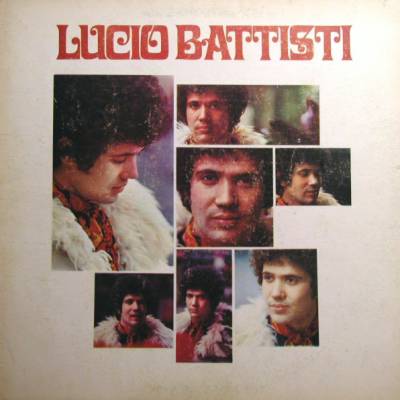 |
|
Lucio Battisti - front cover |
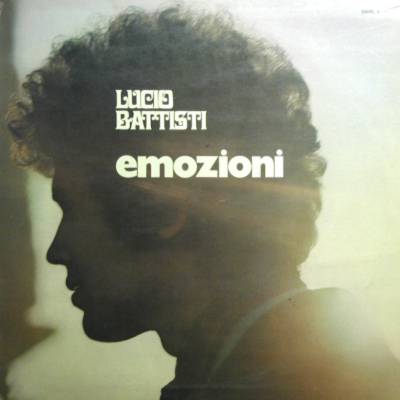 |
|
Emozioni - front cover |
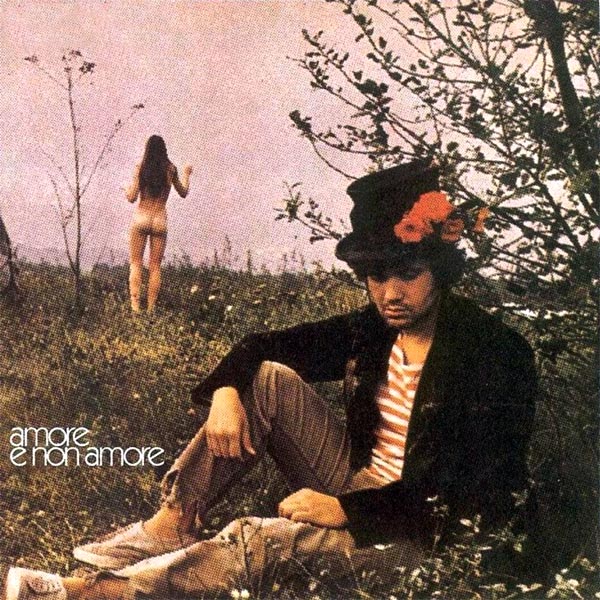 |
|
Amore e non amore - front cover |
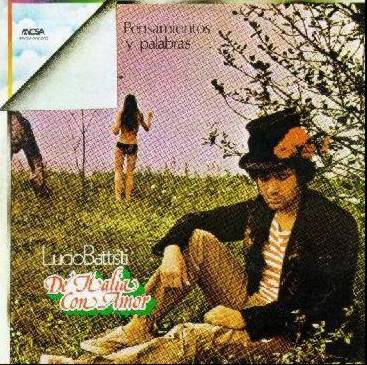 |
|
De Italia con amor - Argentine compilation with censored cover |
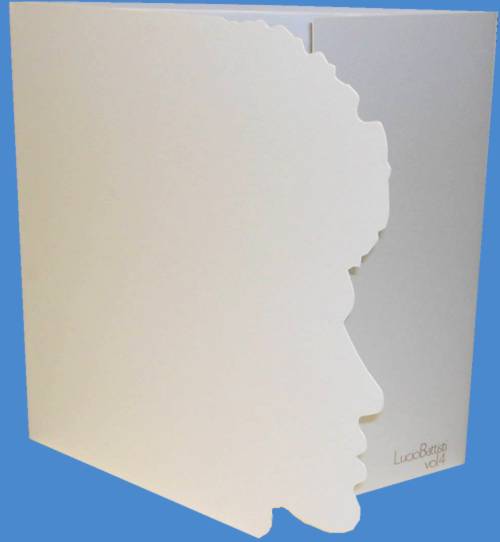 |
|
Volume 4 - open cover |
![]()
Though plenty of information on Battisti
can be found on the Internet, the most complete site on the subject is Io tu noi tutti, at www.luciobattisti.info
![]()
Thanks to Valerio D'Angelo for information and scans of some of the above releases.